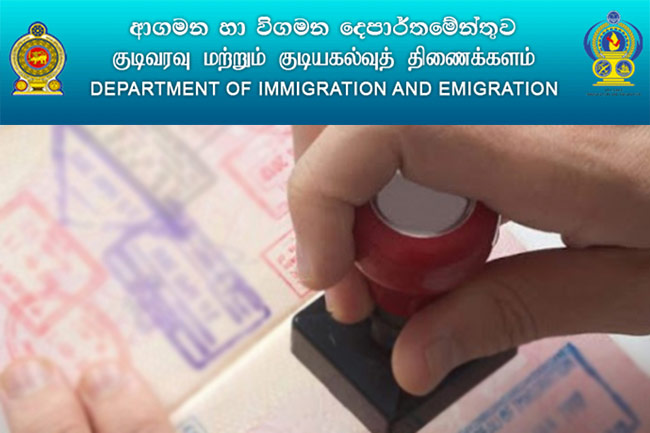Sri Lanka, a popular destination for travellers from all over the world, recently announced a project for avisa exemption for tourists from 38 countries. However, this initiative, which is seen as a way of encouraging tourism, comes up against administrative complications. In fact, the implementation of this programme depends on a parliamentary approvalThis is delaying its launch, leaving some doubt as to the timetable and actual implementation of this measure.
The Sri Lankan government recently announced its intention to introduce a visa waiver programme for tourists from 38 countries. This measure, although initially presented as urgent, is currently on hold, requiring parliamentary approval. The complexity of the legislative process and the implications for the tourism industry raise questions about the viability of this project.
A favourable but complex announcement
The Minister of Foreign Affairs, Ali Sabry, had announced that the Cabinet had given the go-ahead for the introduction of access to the Internet. visa-free for nationals of 38 countries, to be implemented immediately. This announcement caused a stir in the tourism industry, which was hoping to see an increase in the number of visitors to the country.
However, Public Security Minister Tiran Alles was quick to dampen enthusiasm. He explained that the introduction of the exemption programme absolutely required parliamentary approval. So, despite the optimistic announcements, the implementation of this measure faces administrative and legislative challenges.
The legislative framework in question
The need for parliamentary approval to implement immigration policies underlines the importance of the complexity of the processes to be followed in Sri Lanka. Any change to the rules governing entry to and residence in the country requires a solid legal framework. It takes more than mere announcements to institute significant changes in regulations on visa.
Minister Alles specified that a new official text had to be prepared, and this involved not only drafting a bill, but also consulting the various stakeholders, including the tourism industry and security experts. This will ensure that the changes made are both legal and relevant to national security.
Impact on tourism and the long road ahead
Uncertainty over the timetable for adoption of this measure is creating concern within the tourismThis is particularly true in the run-up to the presidential election on 21 September. The sectors concerned fear a stagnation that could affect tourist flows and the local economy.
Minister Alles also indicated that Parliament would not hold a meeting before the elections, further delaying discussions on visa exemption. In the meantime, in an attempt to alleviate the situation, the number of counters at the airport has been increased, although this offers only temporary respite from the already onerous delays experienced by travellers on arrival.
The road to parliamentary approval
For the Visa Waiver Programme to become a reality, the government will need to present a clear proposal to Parliament. This process will not only involve drafting a bill, but will also require a political consensus on the issues of immigration and the country's security. The Minister gave no indication of how long it would take to obtain parliamentary approval.
For more information on requirements and procedures, travellers are advised to consult reliable resources. Articles such as those available on apply.com.lkThese are generally sufficient to clarify the current status of visa applications and the necessary formalities.
Towards continuous monitoring of the situation
While waiting for the government to finalise this project, it is imperative for the tourism industry and potential travellers to keep abreast of developments in immigration policy. The Sri Lankan authorities must carefully assess the impact of this programme on the tourism market. The success of the initiative will depend on a serious commitment to reducing arrival formalities and simplifying the entry process.
With the eventual introduction of this visa waiver, Sri Lanka hopes to boost its tourism sector. Observers await the outcome of this situation with great interest, as the millions of potential visitors seeking Sri Lankan experiences will inevitably come up against the implications of a still-developing immigration policy.
Comparison of the Impact of Visa Waiver on Arrival in Sri Lanka
| Element | Impact |
|---|---|
| Visa exemption | Indefinitely delayed, parliamentary approval needed |
| Planned implementation | Initially designed to be immediate, now uncertain |
| Impact on tourism | Difficulties getting in, long waits at the airport |
| Reactions from the sector | Growing concerns about arrival times |
| More counters | Temporary measure to reduce waiting times |
| Proposal to Parliament | Detailed proposal required, consultations necessary |
| Approval timetable | Uncertain, depending on parliamentary agenda and consensus |
| Staff training | Initially necessary for effective implementation |

